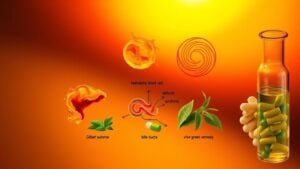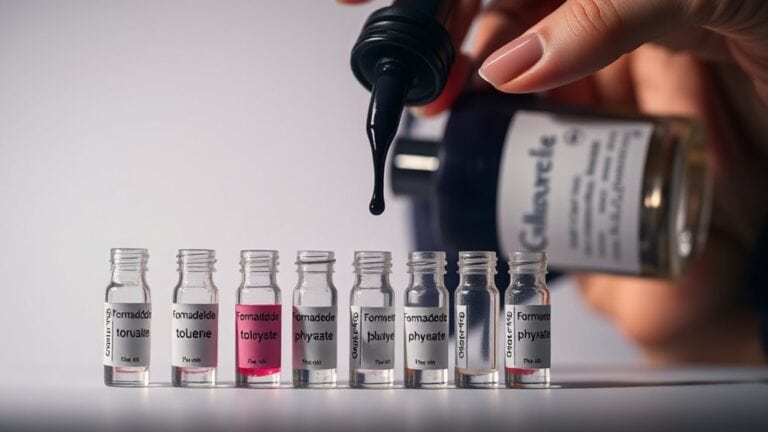Have you ever pondered why your bilirubin levels could be higher even when your liver enzymes appear normal? It can be confusing, but there are a few common culprits. Conditions like Gilbert’s syndrome and hemolysis can increase those bilirubin numbers without causing liver trouble. Medications, mild infections, fasting, and even strenuous exercise can also play a role. Intrigued about how each of these factors operates? Allow us to examine them one by one.
Gilbert’s Syndrome
Gilbert’s syndrome couldn’t be the most well-known health condition, but it’s one that impacts many people, often without them even identifying it.
This benign genetic condition stems from a mutation in the UGT1A1 gene, leading to reduced bilirubin conjugation in your liver.
You may discover that your bilirubin levels are intermittently higher, typically in the range of 1.2-3.0 mg/dL, without any accompanying signs of liver enzyme issues.
Should you observe a touch of jaundice, it could be triggered by factors like dehydration or stress.
Thankfully, this condition doesn’t cause any liver damage, so no treatment is necessary.
Just keep an eye on your triggers, and you’ll manage those bilirubin spikes just fine.
Hemolysis
Having a friendly chat about bilirubin and how it can fluctuate in your body often leads us to ponder conditions such as Gilbert’s syndrome.
One common cause of high levels of bilirubin is hemolysis, where red blood cells break down faster than usual. This accelerated destruction leads to heightened bilirubin levels, particularly unconjugated bilirubin.
Conditions like hemolytic anemia, autoimmune disorders, and even infections can trigger this breakdown. In the event this occurs, you could observe low haptoglobin levels and high lactate dehydrogenase (LDH) in lab tests.
It’s essential to identify these factors, as ignoring them could lead you down the road of serious health issues. Given hemolysis is severe, treatments like blood transfusions could be necessary to manage the situation.
Medications
In terms of medications that can lead to increased bilirubin levels, you may be surprised at just how many are involved.
Some common drugs, like certain antibiotics and HIV protease inhibitors, can disrupt bilirubin processing in your body.
Grasping the dosage and duration of these medications can assist you in pinpointing potential risks and managing your bilirubin levels effectively.
Common Medications Involved
Various medications you could recognize might unintentionally increase bilirubin levels in your body. Here’s a quick look at some common culprits:
| Medication | Type | Effect on Bilirubin Levels |
|---|---|---|
| Atazanavir | Antiretroviral | Causes unconjugated hyperbilirubinemia through inhibiting UGT1A1 |
| Probenecid | Gout medication | Boosts bilirubin via affecting kidney secretion |
| Rifampin | Antibiotic | Inhibits hepatic uptake, raising levels without liver damage |
| Sulfonamides | Antibiotics | Could trigger hemolysis, increasing indirect bilirubin |
| Oral Contraceptives | Hormonal | Can cause mild cholestasis, raising bilirubin without enzyme changes |
If you’re taking any of these, it’s a good idea to discuss your bilirubin levels with your doctor. Comprehending your medications might help you stay healthy and informed!
Dosage and Duration Impact
Grasping how dosage and duration of certain medications influence bilirubin levels is critical for your health. High bilirubin levels can arise even whenever test results show normal liver enzymes.
For instance, medications like rifampin and acetaminophen can inhibit liver enzymes, leading to heightened bilirubin without causing liver damage or noticeable symptoms.
Prolonged use of anabolic steroids and antibiotics, such as atazanavir, can also increase bilirubin levels. Similarly, in case you’re on phenytoin long-term, you could be at risk for hyperbilirubinemia.
Comprehending these causes helps you traverse treatment options and discuss any foundational health conditions with your doctor.
Regular check-ups can guarantee you manage your medications wisely while keeping your liver health in check.
Mild Infections
Mild infections can catch you off guard, making you feel under the weather without any clear warning. Conditions like urinary tract infections or even pneumonia could temporarily raise your bilirubin levels while your liver enzymes stay normal.
This occurs because your body’s response can lead to increased hemolysis or reduced bilirubin clearance. Viral illnesses, such as mononucleosis, often cause higher bilirubin without impacting liver health.
Sepsis, even in its initial stages, can disrupt bilirubin metabolism too. A fever from mild infections can also decrease the liver’s ability to process bilirubin, leading to that yellowish tint known as jaundice.
Fasting and Dehydration
Fasting or a day without adequate hydration can unexpectedly affect your bilirubin levels. Whenever you fast, your body could experience an increase in unconjugated bilirubin levels, occasionally to as much as 300%.
This occurs due to diminished liver uptake and processing during fasting, resulting in more bilirubin in your bloodstream. Dehydration worsens this issue, concentrating bilirubin without altering your liver enzymes.
For example, patients with Gilbert’s syndrome could notice their bilirubin rise by 2-3 mg/dL following merely 24 hours of fasting. Even a 12-hour fast, such as the one before blood tests, may elevate your bilirubin by approximately 20%.
Fortunately, rehydration within 6-8 hours typically restores levels to normal provided dehydration is the sole factor involved.
Strenuous Exercise
At the time you push your body to its limits through strenuous exercise, you could notice some unexpected fluctuations in your bilirubin levels. This is primarily due to the accelerated breakdown of red blood cells, known as hemolysis, triggered by physical stress. While heightened bilirubin can sound alarming, it’s often temporary and linked to increased heme catabolism rather than any liver damage. Intriguingly, marathon runners frequently experience transient hyperbilirubinemia after their races, which usually resolves in a few days. Despite these changes, liver enzyme markers often remain normal, indicating healthy liver function.
| Cause | Effect |
|---|---|
| Strenuous Exercise | Accelerated red blood cell breakdown |
| Physical Stress | Temporary raised bilirubin levels |
| Oxidative Stress | Increased heme catabolism |
| Normal Liver Enzymes | No significant impairment |





